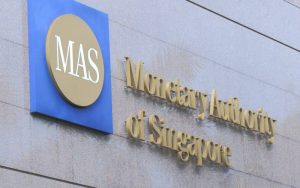Industry taskforce proposes taxonomy and launches environmental risk management handbook to support green finance

repayments
The Green Finance Industry Taskforce (GFIT), convened by the Monetary Authority of Singapore (MAS), issued today a proposed taxonomy for Singapore-based financial institutions to identify activities that can be considered green or transitioning towards green. GFIT also launched today a handbook on implementing environmental risk management for asset managers, banks, and insurers.
GFIT comprises representatives from financial institutions, corporates, non-governmental organisations, and financial industry associations. Chaired by HSBC Singapore CEO Mr Tony Cripps, its mandate is to help accelerate the development of green finance through four key initiatives: (i) develop a taxonomy, (ii) enhance environmental risk management practices of financial institutions, (iii) improve disclosures, and (iv) foster green finance solutions.
Consultation on green and transition taxonomy
GFIT has issued a consultation paper setting out a taxonomy for Singapore-based financial institutions to identify and classify activities that can be considered green or in transition. Compared to other taxonomies, a key feature of the proposed taxonomy is that it encompasses transition activities that allow for a progressive shift towards greater sustainability while taking into account starting positions and supporting inclusive economic and social development.
The consultation seeks feedback on GFIT’s recommendations on the environmental objectives, focus sectors, and a “traffic-light” system which sets out how activities can be classified as green, yellow (transition), or red according to their level of alignment with environmental objectives. The taxonomy references international best practices and adapts them to the Asian context where relevant.
The Green Finance Industry Taskforce will develop, in its next phase of work, a combination of principle-based criteria and quantifiable thresholds for activities. This will provide clarity and ease the implementation of the taxonomy by financial institutions.
The public consultation taxonomy document is available on the Association of Banks in Singapore’s website: link . GFIT invites interested parties to submit their comments by 11 March 2021.
Handbook on implementing environmental risk management
GFIT has also issued a handbook that offers guidance to banks, insurers, and asset managers on best practices in environmental risk management. It will support the financial industry’s efforts to implement MAS’ Guidelines on Environmental Risk Management .
GFIT will work with industry associations to conduct workshops for financial institutions, to help strengthen their capabilities in environmental risk management.
In addition, GFIT is exploring technology solutions for financial institutions to enhance the quality of their climate-related disclosures. GFIT also aims to pilot innovations that seek to solve current challenges in mobilising green finance across sectors. These resources will complement the taxonomy and handbook.
Mr Ravi Menon, Managing Director, MAS, said, “Our goal to make Singapore the leading green finance hub in Asia rests strongly on close public-private partnership. With MAS setting the expectations for sound environmental risk management and the industry coming together with practical solutions on how to meet these expectations, we will develop a more climate-resilient and environment-friendly financial system. I congratulate GFIT for providing our financial institutions a clear taxonomy and a practical toolkit to manage environmental risks and support Asia’s journey towards greater sustainability.”
Mr Cripps said, “The transition to a low-carbon economy calls for collective action across sectors, where financial institutions such as banks play a key enabling role. This is where the GFIT comes into play – bringing together industry leaders, experts, and practitioners across banking, insurance, and asset management to help realise the Republic’s vision to be a leading green finance centre that helps finance Asia’s transition to a sustainable future.”
Financial institutions have been adopting different frameworks for Green Financing. OCBC announced in December last year that it was launching a framework that gives Singapore SMEs increased access to sustainable financing.
OCBC announced that it has adopted the Equator Principles, an internationally-recognised risk management framework adopted by financial institutions worldwide which will guide how the Bank determines, assesses and manages environmental and social (E&S) risks in projects. This move is part of the Bank’s ongoing push towards responsible financing and builds on its previous commitments to sustainability.
Earlier this year, the Bank announced an ambitious new target of S$25 billion by 2025 for its sustainable finance portfolio after surpassing its initial target of S$10 billion in the first quarter of 2020 – two years ahead of schedule. Notable deals include an A$25 million green loan to ComfortDelGro to finance a hybrid bus fleet in Australia, a S$1.95 billion green club loan to M+S Pte. Ltd. for Marina One, and a sustainability-linked trade facility to support the trade and shipment of 50,000 metric tonnes of sustainably sourced sugar, valued at almost US$16 million.
The Equator Principles (EPs) is recognised internationally as the “gold standard” for E&S Risk Management for infrastructure projects. It establishes a common standard for determining, assessing and managing environmental and social risks in large-scale development projects. The EPs is based on the International Finance Corporation (IFC) Performance Standards published by the World Bank Group and covers a majority of the project finance transactions originating from emerging markets, providing a minimum standard for due diligence and monitoring to support responsible risk decision-making.
OCBC Bank’s voluntary adoption of the EPs is an extension of the Responsible Financing framework which the Bank has put in place since 2017. The existing framework on responsible financing spells out a range of policies and practices to ensure that the financial services provided by the Bank do not adversely impact people, communities or the environment.
As a signatory of the Equator Principles, OCBC Bank will further strengthen its Environmental, Social and Governance (ESG) related disclosure and reporting by disclosing information related to large-scale projects the Bank has financed globally. This will ensure that strict environmental and social standards are applied in line with the international best practices including the IFC Performance Standards during the project development and construction process, including follow-up monitoring.
The post Green finance to be better supported with MAS’s new handbook appeared first on iCompareLoan Resources.

